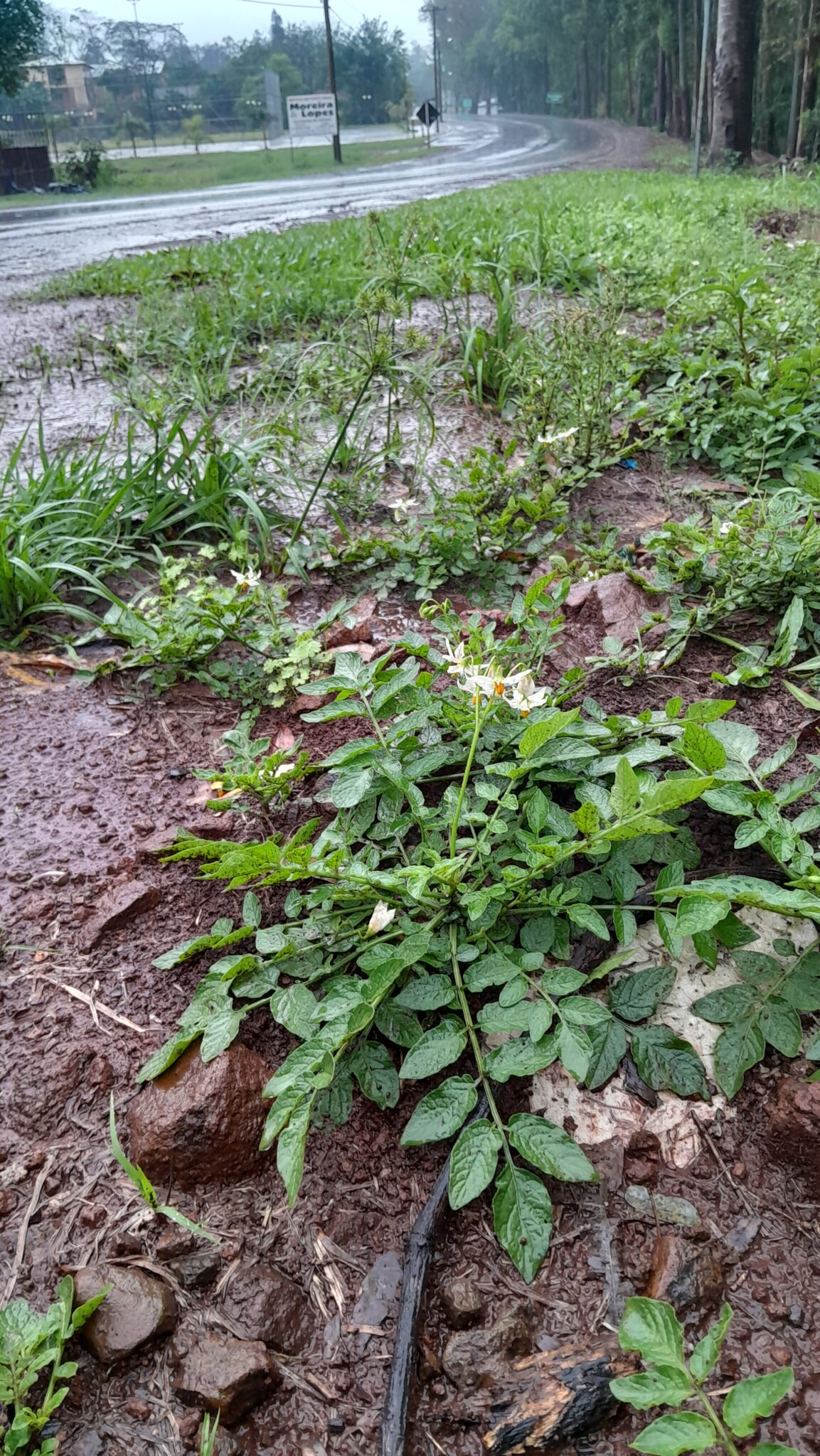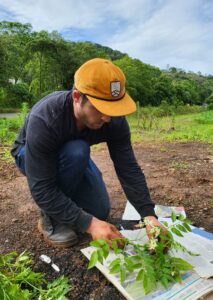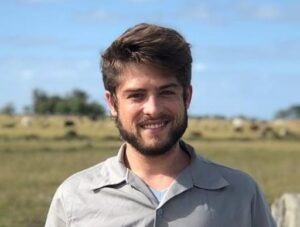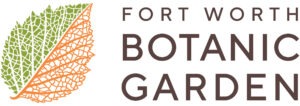
- News & Publications
- News
- Support
- About Us
- Education
- Research
- Research Programs
- Herbarium
- Library & Special Collections
- About the Library
- Library Exhibitions
- The Arader Natural History Collection of Art
- The Stansbery Collection for Botanical Art
- Rare Book Room Collection
- The Oliver G. Burk Children’s Collection
- History of the Library
- Library Inventory
- Library Archives Collection
- Archive Lens
- Collections Lens
- Botany Stories
- Discovery Resources
- Participate
- BRIT Press
- Research Resources
- Collections
June Lunchtime Lecture: Hybridization of Potatoes in South America
“Hybridization of Potatoes in South America “
A presentation from Rodrigo Nicolao

Solanum sect. Petota (Solanaceae) comprises potatoes (S. tuberosum), the third most important food crop on Earth, five domesticated potato species, and 107 wild relatives. Potatoes are widely distributed in the Americas continent. S. sect. Petota ser. Commersoniana is unique as one of the few South American groups that occur outside of the Andes, extending into Argentina, Paraguay, Uruguay and Southern Brazil. This group has a complex taxonomic history and the number and rank of taxa belonging to series Commersoniana (currently two spp., S. commersonii & S. malmeanum) remains unclear. S. chacoense is sympatric with both species in the series Commersoniana, but morphologically distinct and classified in the series Tuberosa. Interestingly, a hybridization event between S. commersonii and S. chacoense was proposed to explain the origin of S. malmeanum. S. commersonii and S. malmeanum (1EBN) are compatible to each other and partially compatible with S. chacoense (2EBN) under artificial crosses, but the mechanisms involved and barriers to hybridization are poorly understood.

MSc. Rodrigo Nicolao has a degree in Agricultural Technician (2010) from the Instituto Federal Catarinense. Agricultural Engineer (2019) from the Federal University of Santa Catarina (UFSC). Master and PhD student in Agronomy with an emphasis on Plant Breeding from the Federal University of Pelotas (UFPel), Brazil, supervised by Dr. Gustavo Heiden.
Rodrigo is currently working on his doctorate at the Botanical Research Institute of Texas (BRIT), United States, supervised by Dr. Morgan Gostel. Rodrigo is investigating the role of hybridization of these species using breeding schemes, morphological data and universal loci from the Angiosperms353 probe set.
This is a free hybrid seminar. Please join us in person in the Commons of the BRIT Building or virtually via the following link: https://us06web.zoom.us/j/82755024484.
About the Research Lecture Series
The BRIT Research Lecture Series is designed to create community wide conversation about a diverse range of important and rapidly developing topics. This series gives scientists and speakers a forum for sharing the most current information about their areas of expertise and allows the public to interact with leading members of the local, national, and international scientific community. Read more at fwbg.org/events/lecture-series.
Date
- Jun 04 2024
- Expired!
Time
(online)- 12:00 pm - 1:00 pm

June Lunchtime Lecture: Hybridization of Potatoes in South America
Date
- Jun 04 2024
- Expired!
Time
(online)- 12:00 pm - 1:00 pm
“Hybridization of Potatoes in South America “
A presentation from Rodrigo Nicolao

Solanum sect. Petota (Solanaceae) comprises potatoes (S. tuberosum), the third most important food crop on Earth, five domesticated potato species, and 107 wild relatives. Potatoes are widely distributed in the Americas continent. S. sect. Petota ser. Commersoniana is unique as one of the few South American groups that occur outside of the Andes, extending into Argentina, Paraguay, Uruguay and Southern Brazil. This group has a complex taxonomic history and the number and rank of taxa belonging to series Commersoniana (currently two spp., S. commersonii & S. malmeanum) remains unclear. S. chacoense is sympatric with both species in the series Commersoniana, but morphologically distinct and classified in the series Tuberosa. Interestingly, a hybridization event between S. commersonii and S. chacoense was proposed to explain the origin of S. malmeanum. S. commersonii and S. malmeanum (1EBN) are compatible to each other and partially compatible with S. chacoense (2EBN) under artificial crosses, but the mechanisms involved and barriers to hybridization are poorly understood.

MSc. Rodrigo Nicolao has a degree in Agricultural Technician (2010) from the Instituto Federal Catarinense. Agricultural Engineer (2019) from the Federal University of Santa Catarina (UFSC). Master and PhD student in Agronomy with an emphasis on Plant Breeding from the Federal University of Pelotas (UFPel), Brazil, supervised by Dr. Gustavo Heiden.
Rodrigo is currently working on his doctorate at the Botanical Research Institute of Texas (BRIT), United States, supervised by Dr. Morgan Gostel. Rodrigo is investigating the role of hybridization of these species using breeding schemes, morphological data and universal loci from the Angiosperms353 probe set.
This is a free hybrid seminar. Please join us in person in the Commons of the BRIT Building or virtually via the following link: https://us06web.zoom.us/j/82755024484.
About the Research Lecture Series
The BRIT Research Lecture Series is designed to create community wide conversation about a diverse range of important and rapidly developing topics. This series gives scientists and speakers a forum for sharing the most current information about their areas of expertise and allows the public to interact with leading members of the local, national, and international scientific community. Read more at fwbg.org/events/lecture-series.
